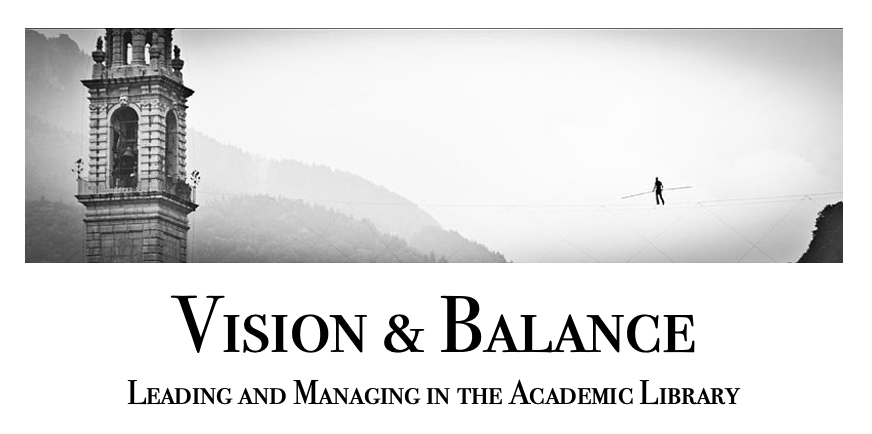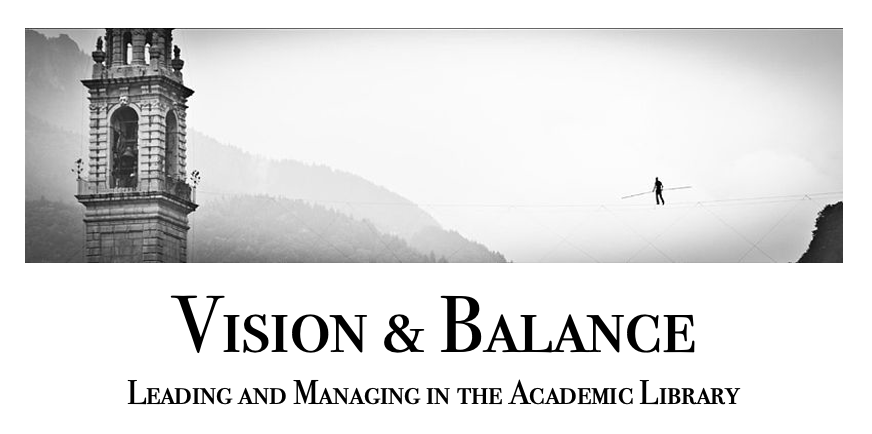Email and Expectations
What does your email behavior communicate to your employees and your leadership team? (Answer: it communicates more than you think it does.)

As a library leader, chances are good that you do at least some of your work outside of normal office hours. You're probably checking email in the evening after dinner, or when you first get up in the morning, and responding to at least some of it in real time rather than waiting until you get back to the office. Or maybe you're traveling to a faraway conference or a consulting gig and reading your email at a time that represents normal working hours where you are but is in the middle of the night for your employees back home. Or maybe inspiration strikes you as you're going to bed and you jump up and write a message to your team while the inspiration is still strong.
In these moments, you're sending more than just the messages you write. The content of one of those emails represents your explicit message. But you're also sending implicit messages – yes, plural – and those messages may actually be more important and more impactful than the explicit messages you're sending. And the more you rely on implicit rather than explicit messaging, the more confusion and stress you're going to cause for your employees.
Here's an example of what I mean.
Suppose you check your email after dinner on Tuesday evening and see a note from a university administrator that was sent just before you left the office, asking you to put together some personnel data and send them to her by Friday. You forward the message to your HR manager, asking him to have the data to you by Thursday so you can review it together before forwarding it to the administrator.
What messages have you sent with this email?
The obvious, explicit message is the request for data with a deadline. But intentionally or not, you may have also sent some implicit messages, including:
- "I work all hours of the day and evening."
- "I expect you to keep an eye on your email all hours of the day and evening."
- "I expect you to respond to email whenever I send it, regardless of the time."
Now, to be clear: you likely had no intention of sending any of the above messages. You were just looking at your email and you followed up when you saw the message from the administrator, thus getting the request off of your to-do list and the ball into someone else's court so you could rest easy that night. But all of us send implicit messages unintentionally all the time, and as library leaders we need to be unusually careful about the messages we send unintentionally. The people we lead are always watching us for clues as to what we expect of them, and while some – not many – will speak up and ask for clarification when they want it, most will err on the side of caution and assume you want more from them than might actually be the case. ("Hey, I got an email from you at 9:00 pm the other night. I just want to make sure I understand what your expectations are with regard to my working hours," said hardly any employee ever.)
The good news, of course, is that it's relatively easy to avoid imposing this kind of ambiguity and stress on your employees: all you need to do is be clear and up-front about what your expectations actually are.
For example, we've probably all seen email messages from library leaders that include, under their signatures, a note that says something like this:
I work flexible hours and you may receive messages or responses from me at odd times. Please don't feel pressure to respond until you are at work.
That can work very well, especially when it accompanies your routine email communications.
With my leadership team, I've gone a step further. When I first began in my current position, I sent them all the following message:
I hate unwritten rules and unspoken expectations; I don’t think they’re fair. I’ve always felt that if something is expected of you, it should be expressed clearly so that you have a fighting chance of meeting the expectation. In that spirit, here are a few things I want to make clear to everyone:
- You may receive email from me at any hour of the day or night, simply because that’s the way I like to work. But I want to make sure it’s clear to everyone that just because you get an email from me at 10:00 pm on a Saturday, that doesn’t mean that I expect you to be monitoring your email after hours and on weekends – it probably just means that a thought or idea or concern occurred to me at an odd time and I’d rather act on that thought right away than try to remember it and communicate it later. With rare exceptions (see next item), any email communication you receive from me after hours will not need a response until the regular workday.
- In light of the above, I’d like to give you all my cell number (801-xxx-xxxx) and ask each of you to provide me with yours. This will allow me to contact you after hours in the event of an emergency or genuinely urgent need. If you entrust me with your number, I promise that I will only use it outside of work hours when truly necessary. This, rather than via email, is how I’ll get ahold of you in the event of an unusual need outside of business hours (though my communication may say “Please see the email I just sent you”). You should feel free to contact me that way as well, if you need to talk to me urgently. When calling or texting me, you don’t need to apologize or justify yourself; I will assume that you’re reaching out because you need me and I will always respond cheerfully. If I can’t respond immediately, you’ll get a text response that says “May I call you back in a few minutes?”
This approach has worked really well for us – it gives me the assurance that I can get ahold of my team in the unlikely event of a real emergency, and it gives them the assurance that unless they get a text from me, they're under no pressure to monitor their email outside of regular work hours.
Of course, some employees do need to be on call in the evenings and on weekends, depending on the nature of their jobs. But good leaders will make sure that everyone who works for them fully understands what those expectations are.
Takeaways and Action Items
- You are always sending implicit messages about what you expect of your employees. The more aware you are of those implicit messages, the better positioned you are to ensure that those expectations are reasonable.
- The more you can make those implicit messages explicit, the happier your employees will be.
- Examine your own email behavior. What messages are you sending, intentionally or unintentionally, to your employees with that behavior? Do you need to adjust it, or make your expectations more explicit?
